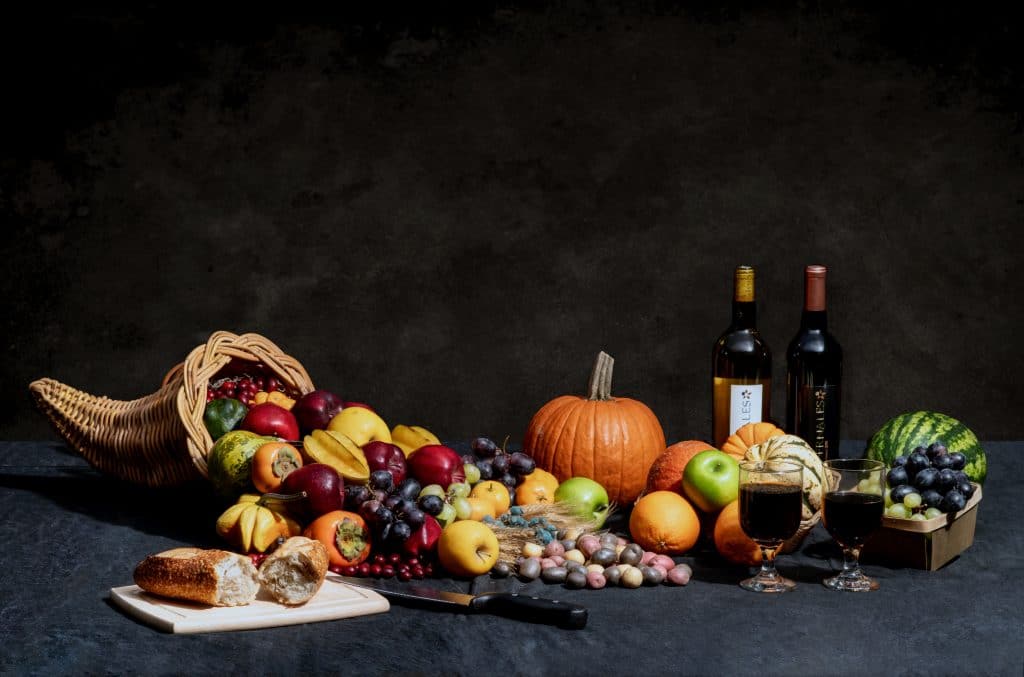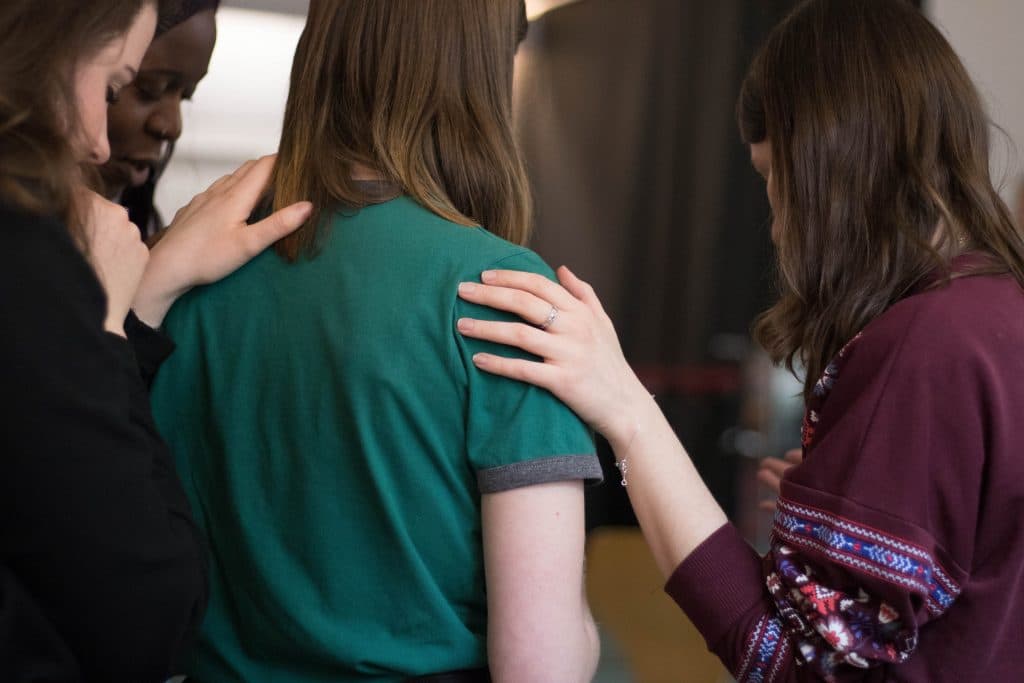(The Scripture passage for this message is 2 Kings 6:24-25 and 7:1-17.)
Elisha was an Old Testament prophet of the 8th century BC. When you look at some of the lesser known stories of the Old Testament, so many of them are full of “dark grace.”
This passage is long, and I’m not sure you’re going to catch everything in one initial reading. It’s really a picture of weakness. It’s a kind of seed theology, or an emerging doctrine. The Bible is demonstrating here, and in a variety of ways, how God thinks about and responds to human weakness. And what eventually emerges (fully in the New Testament) is an understanding of weakness opposite and counter-intuitive to everything we’re taught by society (in the secular world) and even opposite to what we learn in spirituality, religion, and morality, as well.
The marauding bands of the Syrians, or “Arameans,” have withdrawn from Northern Israel (“Samaria”/the Northern Kingdom). Syria stopped (as it were) the terrorist activity, but they’ve now returned with a proper kind of war. As was common, they surround the capital city and impose famine. They starve the enemy into surrendering—don’t allow any food into the city.
In this flash-famine, Samaria has quickly become desperate! Imagine how it would be for us: suddenly, the price of food is so outrageously high that the least desirable part of an unclean animal sells for one month’s wages. A donkey head sells for 80 shekels of silver. The king of Samaria, up in his palace, learns that people in the city are cannibalizing human babies. (I told you: this is dark stuff.) And when the king hears that, he weeps and he rages, “This is because of that prophet Elisha! He’s cursed us!”
So the king sends “the royal officer” (his assistant) to execute Elisha!
When the assistant arrives, Elisha has the elders bar the door, and the guy yells in, “We can no longer trust God. God is not the solution, God is the problem!” (paraphrase of 6:33).
But man-of-God Elisha has a message from God, a message of grace: “No! Don’t stop trusting God now! Tomorrow, God will supply us with more than you could possibly dream—Good News!”

The Assistant replies, “No way! I don’t believe God means us well, and I don’t think He can feed us even if He wanted to! Even if a window from heaven opened, God couldn’t provide in the way you describe! He’s not willing and not able! I tell ya, we won’t see it!”
Elisha, seeing that this man will not believe the Good News about God’s plans and God’s character, says “Oh, you will see it, but you won’t eat it.”
It’s at this point in the story that we meet the four stooges.
Four lepers fat and happy. Of course, at this point, they’re only lepers starved and desperate. These lepers are between a rock and a hard place; they can’t go into their home city because there’s no food and they’ll die. They can’t go out to the Arameans because they’ll probably kill them. However, those Arameans do have food. So it’s worth a try, right? Because they’ve got nothing to lose!
So, driven by desperation, the weakest of the weak, the famished, diseased, four dying lepers leave the city gate and stumble at twilight into the enemy camp, right through the front door.
At the same time, the Arameans—Israel’s enemies—hear a rumor (as some scholars interpret verse 6, “the Lord caused the army of the Arameans to hear a sound of chariots and…horses, even the sound of a great army”) or maybe an auditory illusion. Believing that Israel has somehow hired a huge mercenary army from Egypt, and fearing a complete slaughter, the Arameans absolutely panic and bolt out the back door, fleeing for their lives. They leave almost everything in the camp, including vast supplies of food.
So then, these weak, famished, diseased outcasts stagger into the enemy camp and…it’s better than Christmas morning! They go wild! There’s food and clothing and gold everywhere! So they pillage like squirrel pirates! They carry off as much as they can hold, arms full of spoils. Taking and stashing and stuffing their mouths! You can’t even imagine how giddy and amazed and scared they are, laughing and crying and thinking this is crazy!
Until one of these lepers, fat and happy, says (verse 9), “Fellas…wait! This ain’t right. This is just wrong, not sharing this Good News” (or “evangelias,” or “Gospel”). “We’ve gotta share this Good News with the city, or we’re gonna get in trouble.”
So it’s back to the city gate, and from there (by messenger), back to the palace. The writer takes us full circle; we started at the palace with the king weeping.
The kind sends out scouts because it sounds too good to be true. It sounds like a trap. And the scouts are willing to go and check it out because, like the lepers, they’ve got nothing to lose. They’re going to die if they stay in the city. Desperate and weak, they fulfill their mission and come back with Good News, confirming the lepers’ report.
What happens next? The starving people of the city run out and ransack the Aramean camp. Suddenly, there’s a superabundance of food! Fine flour sells for the price of common barley (like Porterhouse for the price of Spam). It’s rags to riches!

And the King sends the unbelieving assistant back to the city gate. He tries crowd-control, but he’s trampled. He sees it, but doesn’t get to eat it—just as Elisha said.
Now: what’s the emerging idea, the seminal doctrine in this story?
What does it say about the Bible’s unique understanding of human weakness? Let’s trace the sprout all the way to the full flower in the New Testament: four ideas about weakness (and a final question).
1. You only see the uniqueness of the Bible’s teaching on weakness when you face that moment when God Himself became weak: in the death of Jesus Christ. God becomes a man (unites Himself to a human body and human nature) and He gives up—loses—His power, becoming weak.
God becomes a baby. Becomes a minor child, a servant (Phil. 2:1-11).
And finally, JC, the God-Man, becomes cursed and condemned with no power, no legal rights, a criminal and an outcast, like a leper (“like one from whom men hide their face,” Isaiah 53).
And yet, as Paul wrote, (1 Cor. 1.25) “The weakness of God is stronger than men.”
When God became weak in the Person of Jesus Christ, God undercut and disarmed all of our objections and defiance and opposition. He exposed our strength and showed it up to be an illusion. It was in this weakness that God planted His Kingdom on planet Earth. He plundered the enemy and triumphed! God’s weakness is greater than our strength!
This weakness is so central and so important to the way God does things. It means that for those who enter His Kingdom and live through faith in Jesus Christ, weakness must also be very important to them. We enter the Kingdom not by our qualifications or connections, or by the strength of our will or discipline—we don’t make some qualifying gesture of goodness or power or commitment—we enter through the door of need, through desperation and hunger. We are diseased and weak. That’s why the basic ethic of this Upside-down Kingdom is stated in the words of the Sermon on the Mount (Matthew 5), “Blessed are the poor in spirit, for theirs is the Kingdom of heaven. Blessed are those who mourn, for they will be comforted. Blessed are the meek, for they shall inherit the Earth.”
These lepers illustrate the Bible’s whole teaching that says unlike the world with its constant longing for strength and control, and unlike religion with its leaning on moral strength to give us worth and make us deserving—in the Gospel, recognizing our own weakness leads us to the position of blessing.
2. Seeing life in this new way can almost make us want to be weaker. The lepers were the weakest of all, and they became fat and happy. The Apostles taught that when people really get the Gospel, they will inevitably draw a conclusion that, “If the weaker and more sinful people get more grace, well, let me sin more so I can get more grace!”
People with manners and success? They often think they just need a little fine-tuning. If really big, sensational sinners, the morally diseased and outcasts—if they clearly see Jesus Christ as their only hope, then why am I trying so hard? Why not sin big so I can get big grace?
Paul replies, “No way! Don’t do that!” Why? Because you are already more messed up than you know you are. Really. See the flaws already there, and you’ll have all the weakness you’ll ever need. Ask your spouse; they’ll help you see your flaws.
The key is not to sin more; the key is just to see your sins and weakness. Seeing your flaws makes you humble, and God gives grace to the humble. Grace is for the desperate and dissatisfied who have nowhere else to go. So don’t sin more, just see more of what’s already there. In The Four Loves, C. S. Lewis put it this way: “The good man is sorry for the sins which have increased his Need. He is not entirely sorry for the fresh Need they have produced.”
3. The penalty for deliberately refusing and reversing this Gospel and grace order is always great. You see it when this assistant says, “No way! I don’t believe God is good to the weak. I won’t accept it! Can’t happen! Too good to be true!” He ends up not only hungry, but dead.
A pretty big warning there: God is turning the world’s value system upside-down. He’s showing that grace is not for the strong and proud, but for the weak and humble. And this really is why sometimes the very worst thing that can ever happen to a person is being strong, healthy, wealthy, and self-sufficient. While some people can’t see God as gracious because they’ve experienced a lot of pain (like the assistant), some people feel so secure that they never see their blessings as gifts from God.
Either way, nothing is more spiritually fatal than to reject, deny, or neglect God’s grace and goodness.
4. What should you do with your weakness? Two ways to use your weakness:
First, learn to share it with others. This was a little band of lepers—a little weakness community (like your church, probably!). Learn not to hide your weakness—your hurts, your failings, and your struggles—and develop what one friend calls “appropriate vulnerability.” If we boast in the Lord, we can avoid getting self-justifying and secretive (that’s a misuse of weakness). Our freedom to say, “I’m wrong” may just lead our friends into Graceland. One rule of thumb might be share it, when it can help others. Share your weakness when it can highlight God’s abundance.
On the other hand, don’t be fixated on and defined by your weakness. A victim mentality (playing Eeyore) with a low self-image can be just another way to be self-ish, thinking too much about the self.
Second, identify with the weak and needy. Seeing myself as a radically flawed person that is weak but infinitely loved, I am able to move toward other weak people. And not as Mr. Superior Hero Guy, but as a fellow leper. Like the lepers, I can say, “This is too good to keep to myself and there’s so much to go around. Can I share some Good News about this feast?”
We’re all a bunch of stooges who wandered into Graceland. This day is a day of Good News—too good to keep it to ourselves.

And so, we come to a final question: What do you have to lose? This Old Testament story featured so many people with nothing to lose: the lepers, the scouts, the people. But imagine someone in that starving city who is not starving. He or she stashed a donkey’s head in the refrigerator, and when everyone goes to feast on food and grab the gold, they’re like, “No thanks, I’m not in need.” I hope you won’t lose the Kingdom because you’re satisfied with reputation and strength. Don’t be content with fake strength when infinite joy is offered to the weak!
Reality Changing Observations:
1. Who in this story most resonates with where you are in life right now? Is it the lepers, the assistant, Elisha, someone else?
2. How comfortable are you acknowledging your weakness before yourself, before God, and before other people? Why is that?
3. What difference would it make in your spiritual life and in your relationships to begin to embrace your weakness and need?





